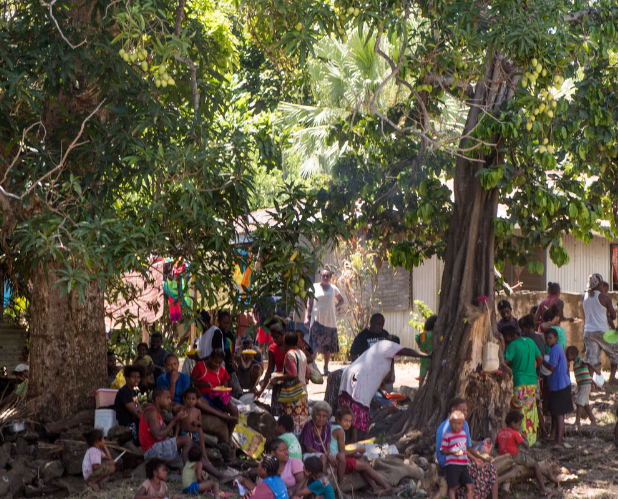ĀTEA
Introducing The Spinoff Ātea, an online community for Māori perspectives and insight
No more ‘us’ and ‘them’, writes Ātea editor Leonie Hayden.
In pōwhiri, women karanga to welcome guests onto the marae and to settle the spirits of the dead. This role is symbolic of the fact that only women can bring forth life. Men sit on the paepae and give the whaikōrero, trading and sparring with words, to symbolise battle, and the protection of life-bearing women (there are exceptions in some hapū but the idea is that men are expendable). Pn20
The marae ātea is the open area in front of the wharenui where this ritual of encounter takes place. It is the domain of Tūmatauenga, the god of war and people. To show respect for the mana of Tūmatauenga, whaikōrero between those on the front benches should be forceful and filled with confidence and passion. When it is done, those that were at war greet one another, share breath and then food.
Welcome to The Spinoff Ātea.
We dedicate this space to Tūmatauenga, of men and war, Hine-te-iwaiwa, of women and birth, and Papatūānuku, mother of all colours, cultures and genders who holds us all.
Ātea, a new dedicated Māori perspectives section which I’m proud to be editing, is entering a media landscape composed of ‘us’ and ‘them’. Mainstream broadcasters cry, ‘we’re not racist, we just can’t find any brown writers!’ Meanwhile kaupapa Māori production houses like Kura Productions, Brown Sugar Apple Grunt and Pango write and produce award-winning programming and sell their ideas to major networks in the US. News outlets announce they will finally be deigning to spell te reo Māori correctly by using macrons, but then defend their right to publish heartbreakingly racist cartoons.
We wanted to build an arena of thought and debate where the indigenous perspective is the default – like our tuākana at e-tangata, Waatea, Māori Television, Te Karere, Marae, and The Hui have, and like so many before them – in the hopes that some of the nearly three million page views The Spinoff attracted last month will find their way to it. This is a fully realised Treaty partnership.
The Spinoff audience is large, young and young-at-heart, open minded, educated and likes to laugh. You care a lot about equality. You listened when Luke Tipoki talked about how mispronunciation of kupu Māori diminishes mana and when the Rev. Hirini Kaa told us that conflict at Waitangi is essential. You cared about Deborah Mahuta-Coyle’s affecting letter to Don Brash. These are among the most-read stories ever published on The Spinoff.
It encouraged us to build on that, and to tell you more. I’ve come into this role after a three-year stint editing Mana magazine – a privilege I never imagined I’d have in my lifetime. Now, to add to this embarrassment of professional riches, I get to take what I’ve learned and try to build something new.

OLD JOB, NEW JOB. IMAGE: MANA MAGAZINE, JUNE/JULY 2015.
But building new things means acknowledging the old. While it’s fun to poke middle New Zealand and current affairs with a stick, history and tradition need space too. Indigenous approaches to childcare, health, business and education all hold lessons for us today. We need this knowledge to explore ways of practicing Māoritanga in an urban context and to make sense of the last 175 years. I’m excited to be introducing you to writers that take mātauranga from our ancestors and show us how to use it today, as well as writers that speak for the disenfranchised.
Some people might not like it. God knows most stories The Spinoff publishes that touch on race and ethnicity are plagued by grotty comments. I’m afraid to say we will be deleting your ‘Kiwi not iwi’ comments with reckless abandon. Everyone is welcome at Ātea, but we ask you to participate on our terms. Obviously we will delete anything with the merest whiff of ‘farkin lazy Mow-ries’ about it, but I will be deleting the ‘well, actually…’ comments too. Debate and disagreement is par for the course, encouraged even, but if you seek to minimise or erase Māori perspectives and histories, you will be asked to head down the lane and proceed into the deep, blue moana.
Ātea is a dedicated channel for content made by and for Māori communities, and we acknowledge that describes a huge spectrum of people and experiences. It may contain truths you’ve never considered; perspectives you’re not familiar with. Tell us what you think. It’s your paepae.
Ka pū te ruha, ka hao te rangatahi. Nō reira, nau mai ki Ātea.
This article has been updated to include Waatea News, an essential Māori news and current affairs service.





